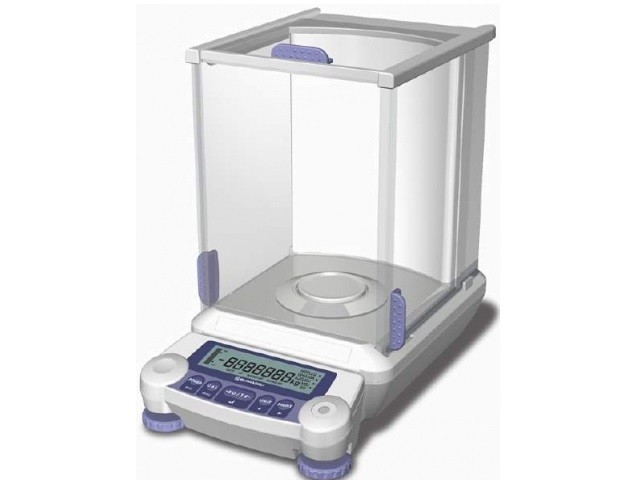Weight is a term we come across often in our lives. Everything present in our surrounding has a definite weight or mass. This weight is measured by the help of various kinds of balance that is easily available in our market. The weighting industry chiefly stands on the precision of the balance; to get the accurate result the exactness of the weight is very important. The use of a balance is widely spread in various industries and sector of our society, from buying vegetables in a market to weighting a small mass in a lab to precision the balance is needed in all of this.
The use of a balance is a mandatory in any kind of laboratory, where the smallest mass in sub-milligram scale has to be measured accurately. Analytical balance or lab balance is an ideal choice for measuring a very small mass to precision, even a small environmental variable (EV) can affect the accuracy of the result. So, the balance is always kept in an enclosed box so that the mass is protected from the outer surrounding. Another type of balance that is used in a laboratory is precision balance which is also used for balancing very small mass with precision but it is not as accurate as an analytical balance.
What is analytical balance?
Analytical balance also known as lab balance is highly sensitive lab balance used to weight the smallest mass with accuracy. As this device is very sensitive in nature a light breeze can even affect the result, so we will often see this device is kept inside a protective glass chamber and a quiet undisturbed room. An analytical balance has finer ability to read the weight, its scale ranges from 0.1mg to 0.01 mg. These are commonly seen in chemistry labs and also used in school laboratories and in pharmaceutical colleges and labs. They are however not at all useful for commercial purposes.
Some common features or function of an analytical balance
- It comes with a check counting features
- Although the balances come with small capacity of mass ,it ensures large results without having all the material in the balance
- Percentage weighting features gives a more accurate and quicker formulation
- It comes with a automatic formatting system which saves more time for the researcher to do their work in the lab
- A big bright display with multi linguistic software allows it to be used in various countries
What is precision balance?
The meaning lies in the name of precision balance, a balance used to weight a mass to its precise number. It comes with a capacity ranging from grams to kilogram. They are not as precise as analytical balance but more accurate than a compact or bench scale. It is sturdier than and not as sensitive as the analytical balance. This means, it will not be affected by environmental factors as easily and have the capacity of measuring weights that are higher than that measured by the analytical balance.
Some common features and function of precision balance
- It have a large capacity and sturdy enough to weight any hard material
- It is more widely used device in various kind of labs of chemistry ,biology or physics
- It is cheaper in price compared to a analytical balance and are used in many industries where too much precision is not required
- It has a multiple weighting feature like dynamic weighting, parts counting, percentage weighting etc.
- It is more durable device and can handle rough use.
Difference between analytical balance and precision balance
Both of these balances are used in weighting small mass in laboratory. But there are some differences between these balances.
- An analytical balance is more accurate in result compared to a precision balance.
- An analytical balance measures up to four decimal places to the right of the decimal whereas precision balance measure up to three decimal from the right of the decimal.
- Analytical balance are capable of measuring the sample between sub milligram ranging to kilogram ,precision balance measure up to grams to kilogram
- Analytical is highly sensitive and get easily affected with the surrounding but precision balance don’t get affected by the environment and gives result in a second.
- Analytical requires monitoring frequently whereas precision balance can be used roughly without taking much care
- Analytical balances are pricier and only few labs pharmaceutical uses this device whereas precision balances is much more economical and are used in various sectors of industry.
When you compare the working of analytical and precision balances , they both have their advantages as well as drawbacks. Depending on the purpose for which you need the device, it should be chosen accordingly. When you keep in mind the basic differences between the two devices, you will be easily able to determine which the better choice for your work is.s

